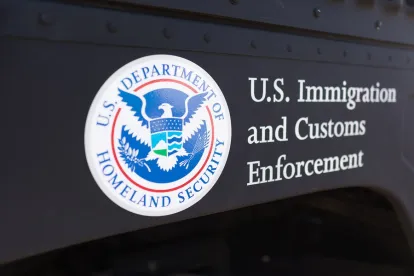Troubled by the repetitive involvement of Immigration and Customs Enforcement (ICE) in schools, a Latinx immigrant rights organization has asked the School District of Philadelphia to lay out clear rules and guidelines for ICE involvement on school premises. The group has also asked the school district to better train its staff and teachers.
In February 2020, ICE officers detained a pregnant mother who had just dropped off her child at the Eliza B. Kirkbride Elementary School in Philadelphia. This incident raised panic in the minds of immigrants and refugee communities.
Juntos – Latinx Immigrant Organization
Juntos, a community-led Latinx immigrant organization in Philadelphia, launched its Sanctuary Schools Campaign at a news conference. The organizers called for more training for teachers and staff, clearer district guidelines, and renewed financial investment aimed at making schools a safer place for children immaterial of their immigration status.
Zia Kandler, a community organizer, said that Juntos had conducted a yearlong survey of 350 Philadelphia schoolteachers, faculty, and administrators regarding the ICE interactions with the school. The survey revealed that nearly 75% of the educators had received no training on how to navigate ICE presence in schools, while many did not know whom to contact if an ICE agent requested information regarding the student or the student’s family.
“Before we can talk about these broader issues of what inclusive schools should look like, about reinvestment in language needs… we have to talk about the role of ICE in schools,” Kandler said. “It’s not the fault of one teacher or administrator who doesn’t know. There need to be clear guidelines and tools on how to support these students.” This campaign launch was Juntos’ first step towards a broader campaign. Juntos aims to ensure that immigrant students and families have their language, cultural, and community needs met in schools.
Sensitive Locations Memo
For over a decade, ICE has been operating under the guidance of the sensitive locations memo. The memo directs officers to avoid enforcement actions at places like churches, schools, medical appointments, funerals, and a few other sensitive locations. ICE added COVID-19 vaccination appointments to its list of sensitive locations earlier this year. ICE can enter such locations only in extreme circumstances, with prior approval.
Campaign Proposal for Philadelphia School District
Kandler, along with Juntos and its partner organizations, requested that the Philadelphia School Board pass a resolution with clear and concise directives. The immigrant groups want the school’s faculty to refrain from giving out student information and asking about, collecting, or sharing student immigration status information. The groups demanded that schoolteachers be trained and that the district notify immigrant families of any ICE enforcement actions in or on school property.
The groups also proposed that school staff deny ICE detainers or requests unless they are valid judicial warrants; that the failure of school staff to adhere to the regulations must result in their termination; and that the district purchases no more metal detectors, facial scanners, or social media and data mining software, as they could be used for intrusive searches.
Philadelphia School District’s Response
The school district circulated a 58-page immigrant and refugee toolkit to teachers and school faculty. This directed teachers and staff to call the district’s General Counsel if an ICE agent came onto school property or if they received a request for further information about a student or their family.
The principal of Kirkbride Elementary, Rebecca Julien, had held community forums and training after a pregnant mother was detained outside her school last year. “Throughout our District, I believe we must stand with our immigrant and undocumented students and families to know their rights, guard their safety and protect their humanity,” stated Julien in an email. She offered her support to Juntos’ proposal.



 />i
/>i

